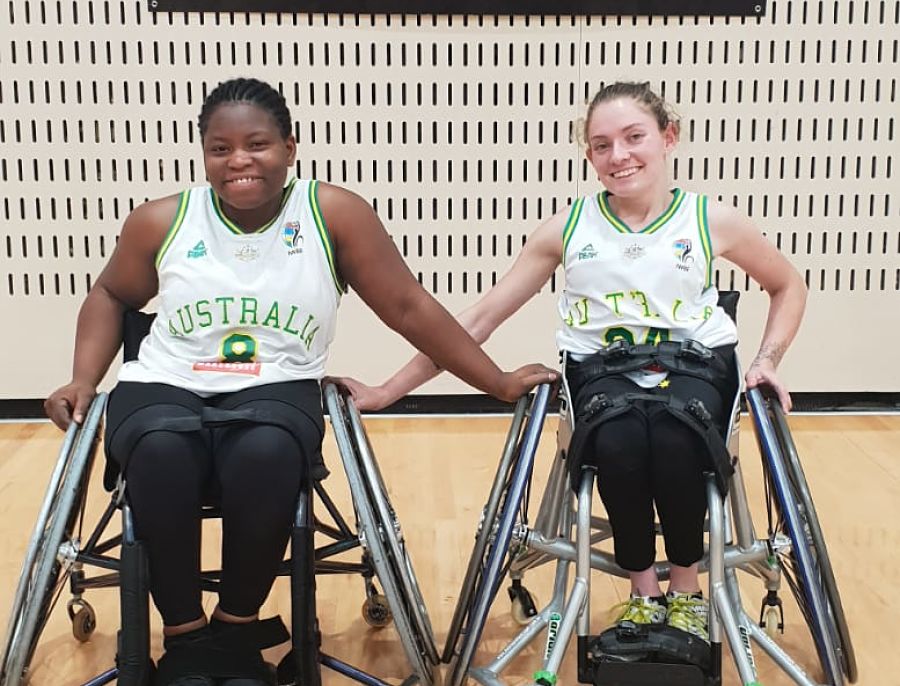Privilege at a Price: The Real Cost of Representation
The opportunity to represent your country is generally painted as a privilege. What that can mask however, is the significant sacrifices that often go unseen in the pursuit of national honours.
For two young members of the WAIS Wheelchair Basketball squad, in chasing their representative goals, beyond the familiar rhetoric of blood, sweat and tears, is the more pressing reality of financial hardship.
Mary Friday and Taishar Ovens both celebrated their 21st birthdays earlier this month, just days apart. Both are also in line to earn selection for the Australian women’s U25 national team at next month’s World Championships in Thailand.
Getting there however, presents an entirely different challenge, with both athletes needing to part-fund their journey to realise that ambition.
For Ovens, this means giving up shifts as an adaptive cross-fit coach – which is her primary source of income – whilst for Friday, she is tasked with attempting to acquire funds through grants or via the National Disability Insurance Scheme (NDIS).
The pair recently earned invitation for an Australian team preparation camp in Thailand, which Ovens said had required her to call on short reserves.
“Basically savings, I even had to ask my parents for a little bit of help. I don’t actually get that many hours (paid work) as I’m training a lot too,” she said.
Friday said this reality was a familiar story for many elite athletes with a disability.
“It’s hard. You’re applying for grants and working hard, and hoping the NDIS gets with it, but yeah, it’s hard,” she said matter of factly.
Friday emigrated to Australia from her country of birth in Nigeria when she was just a child. She has made significant progress within the national set-up as a low pointer (a term describing a wheelchair basketball athlete with a higher level of disability based on the sport’s points classification system) and is considered a future long-term Gliders (senior team) prospect.
Yet against those achievements, she has had to make do with a training and competition chair that is not specifically designed for her requirements at the elite level.
With funding a genuine issue, she has only recently managed to raise the $11,000 needed to access a custom-made chair, which was made possible through a Paralympic Australia equipment grant.
Yet in spite of the financial struggles that both athletes manage, WAIS program head coach Brad Ness said the bond forming between the pair was crucial to girls’ shared success.
“I think the friendship they’ve actually formed since they’ve both been here and the fact they’ve now been pushing one another (is key),” he said of their development.
“It’s interesting to see that they’ve got different skill sets because of their disabilities and they’re now learning, I suppose, the use their disabilities in a way that adds to their game, to put pressure on the other one.
“They hold each other accountable. Mary’s learned to be punctual and make it to the five sessions a week, which is great, and I think Taish has played a big part in that.
“They’ve just been proud coming from the WAIS system and they’re wanting to go to the camps and represent at the highest level they can. And that gives me the greatest satisfaction. That they actually want to go and put on show what they’re learning here,” Ness said.
For those that live without disability, it can be easy to overlook the everyday measures that wheelchair bound members of the community will face. What is the parking and access like ahead of a normal trip to the supermarket? Will there be a chair ramp to get into a post office? They are the routine matters that those living in a wheelchair face on a day to day basis.
Ovens said this meant elite athletes with a disability needed to be more resourceful with their time management.
“A normal athlete, they can just get up and do whatever they want. All of us, we have our own challenges. When we’re in the gym, we’ll have to change the settings, to adapt them to our needs. Being an athlete with a disability, we’re just a lot smarter,” Ovens said with a wry grin.
In Friday’s experience, the stigma is even more apparent outside of sport. She tells the story of a throwaway comment directed at her from a member of the public, whilst simply enjoying a normal night out with friends.
“Just because you’re disabled, doesn’t mean you can’t get involved. You can. Because sometimes I go out and people just stare at me. I had one guy say to me, hey disabled aren’t supposed to be outside at night, and I was just like what? That’s crazy!”
And she challenged people with a disability to not be confined by the stereotypes.
“It’s modern day, things are changing. There are new sports, they’re getting us more involved. I wish people would stop seeing disability as a barrier and actually get out there and do things, rather than making excuses,” she said.
The pair will learn soon whether they’ve made the cut for the final Australian Devils squad to compete at the U25 Women’s Wheelchair Basketball World Championships.

